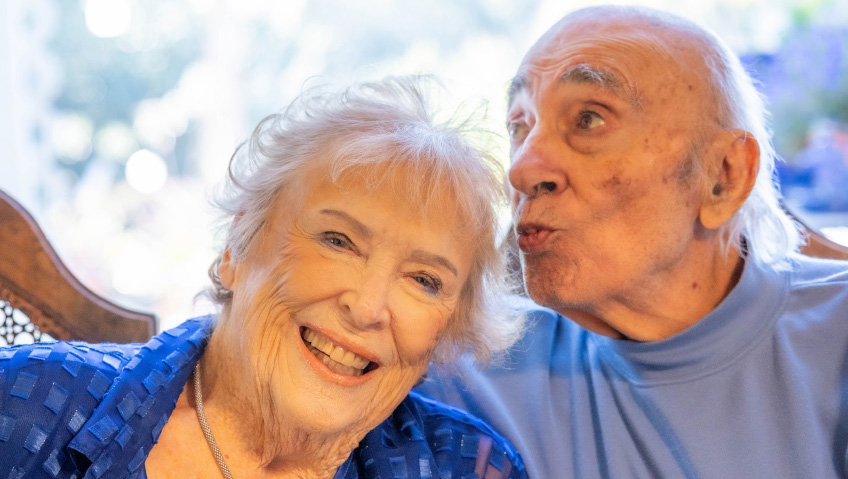Aiming to equip seniors with the tools they need to take charge of their health, maintain independence, and improve their quality of life as they age, Home Matters Caregiving employs an evidence-based, Purpose-Driven Care approach. This model involves creating and implementing personalized care plans that prioritize essential behaviors for healthy aging. With a high-tech, high-touch model, seniors can age with dignity and privacy in their own homes, receiving customized support through a Virtual Assessment Tool that fosters better care outcomes.
Founded in 2007 by Clay and Christina Foutch, a couple from Beaverton, Oregon, the business has unique roots. Clay, a process engineer at Intel, brought a talent for process development and continuous improvement, skills that have significantly shaped Home Matters. Christina, an occupational therapist, wanted to use her therapy skills to help others. Driven by a shared interest in starting a business together, they saw a need in the Beaverton market for high-quality in-home care for seniors.
In 2010, Jeffrey Giedt, now Home Matters’ Chief Executive Officer, met Clay, who shared his distinct approach to the home care industry, blending his background as a process engineer. Captivated by the idea of building a thriving business centered on serving others, Giedt, after much research, agreed to establish an agency in the Arizona market. They shared best practices and supported each other’s growth until 2019, when Giedt had the good fortune of receiving an offer to sell his business.
“I sold my agency, and Clay and I talked about integrating the best of what he was doing in Beaverton with what we were doing in the Phoenix area and creating a playbook for a franchise organization that could help new entrepreneurs interested in serving seniors to create a successful business,” Giedt says.
A vital part of this playbook involved nurturing the company’s culture. “Creating a culture that gives us the ability to serve seniors in an effective way while also serving our caregiving team on a daily basis is crucial,” says Kristi Edwards, a Home Matters Caregiving Franchise Owner. “We’re continually considering how the choices we make and the actions we take allow our caregiving team to better serve seniors in our area.”
For Edwards, this mission includes removing obstacles for her caregiving team and ensuring they have all the tools needed to perform their job effectively. “We also believe in doing well by doing good,” she adds, describing her and her team’s active community engagement, such as participating in the Alzheimer’s Association and serving on the Commission on Aging.
In the past, keeping a senior at home long-term was not always feasible, but with state regulations and structured agencies like Home Matters, society is now better positioned to meet this need. While nursing homes used to be the primary option, today, well-vetted caregivers and structured procedures make in-home care a viable and often preferred alternative.
“In seniors’ lives, things are changing on a daily basis, and having the ability now to address those things and be proactive in care is allowing them to stay home longer,” says Edwards. “Ideally, I think almost everyone would want to stay home long-term.”
AARP’s extensive research has revealed approximately 92 percent of seniors prefer to remain at home and age in place during their golden years, Giedt adds. “It’s the same thing we see when we’re out talking to people’s families—the majority of seniors want to stay where they’ve been comfortable the majority of their life in familiar surroundings at home. That’s one of the gratifying areas of this business, as we get to help people do that.”
Home Matters’ care offerings can vary by state. For example, California does not allow medical care, but Home Matters provides comprehensive non-medical support, from companionship and meal preparation to transportation. For seniors who are bedbound or require hygiene assistance, the organization is well-equipped to support them.
The company also serves as a valuable resource in the senior medical space, connecting clients with necessary services. “Even though our responsibilities in California are strictly non-medical, we have a nurse on staff. This ‘nurse-guided care’ approach is a core philosophy of ours,” says Giedt. “Having a nurse with clinical and medical knowledge and education enables us to identify some of the warning signs of the aging process. “It puts us in a position to provide a higher level of care.”
Advanced technology has significantly enhanced Home Matters’ ability to support clients with various needs, enabling proactive and improved care, says Edwards. From a local agency perspective, technology provides vital client information 24/7. “In the past, agencies like ours used to only have limited information from the time we were physically with the client. But what’s happening when we’re not there?”
Technology has allowed the company to address the inevitable changes seniors face and be proactive versus reactive, allowing them to stay in their homes longer while also improving care outcomes.
“UTIs are very prevalent in seniors, and they can be missed initially, because the senior dismisses it and thinks they’re going to be fine, or if they do have some cognitive impairment, they may not be able to verbalize what they’re experiencing,” says Edwards. “Technology has allowed us to identify things such as a UTI that could eventually lead to falls, delirium, or even death.”
An early alert system enables prompt medical attention, helping to address mobility declines or confusion around medication. “If someone were to fall, we would be able to intervene very quickly and get them the help needed.”
In essence, technology is making a huge difference in the very way home care is provided. “Technology fits into that beautifully, because it’s giving us tools we’ve never had before,” Giedt says. “The industry has traditionally been slow to adopt technology, but when we developed our franchise model, we made technology a core focus, regularly evaluating and implementing the best tools available.”
Home Matters has adopted a system that monitors the well-being of seniors 24/7, establishing a baseline for each individual’s normal activity level and detecting any deviations. “We’re all going through the aging process,” says Giedt. “And for some seniors those changes are happening quicker. When we were blind to them before, we were always reactive. But now we have the data, and the system will tell us when these small changes are taking place.”
This example of the Purpose-Driven Care model goes beyond basic safety and sustenance, addressing the five keys of aging: physical activity, mental engagement, connection with loved ones, and maintaining a sense of purpose. “As we age, sometimes the younger generation doesn’t always appreciate the fact that this person has lived this long, beautiful, amazing life, and they have a lot to offer, and their sense of purpose can be lost,” says Edwards. “But it’s essential for well-being. It could be their faith, relationships, or hobbies, but maintaining their strong sense of purpose is really important, along with infusing fun into their care plan.”
Mental health is also a priority, particularly for seniors aging in isolation. Home Matters assesses potential clients’ mental health, helping those unable to leave their homes stay socially connected, often by working with community resources. “We engage in constant dialogue with clients and their families in how we can better improve their mental health and overall well-being,” Edwards shares.
“Ensuring clients get out of bed every morning and have something to look forward to, something purposeful to them—that really makes a big difference in their ability to thrive,” Giedt adds.
For those involved in Home Matters, this mission is personal. “We all have a heart for seniors,” says Edwards. “If someone’s heart isn’t in the right place, and they’re not getting into this business because they genuinely care and want to see seniors thrive and live their best lives, Home Matters may not be a good fit for them.”
Reflecting on her own growth in the business, Edwards appreciates the strong corporate support that has facilitated her success. Giedt agrees, praising her efforts: “Kristi has done an outstanding job of not only creating that culture of success and assembling a great team, but growing a thriving business focused on serving seniors. We’re incredibly proud of her.”






